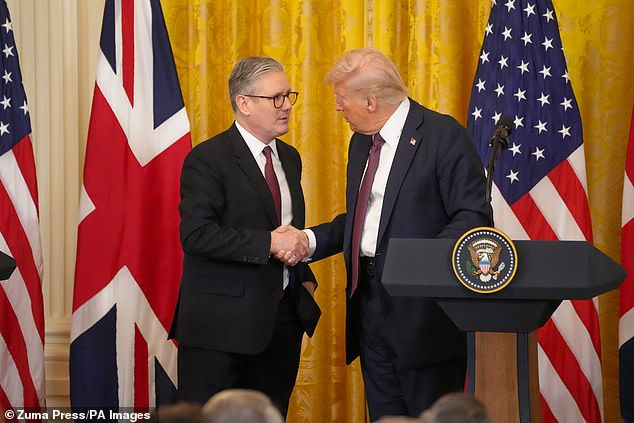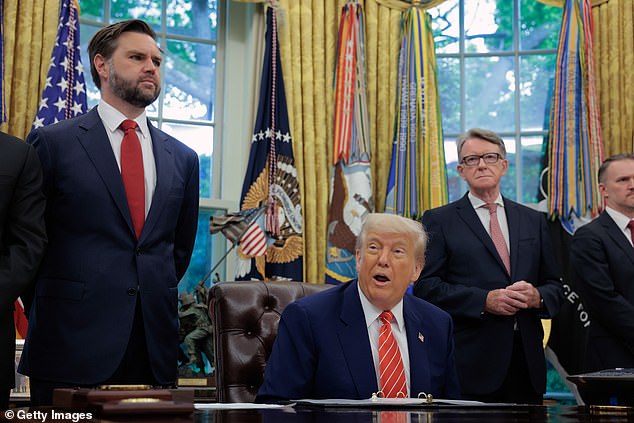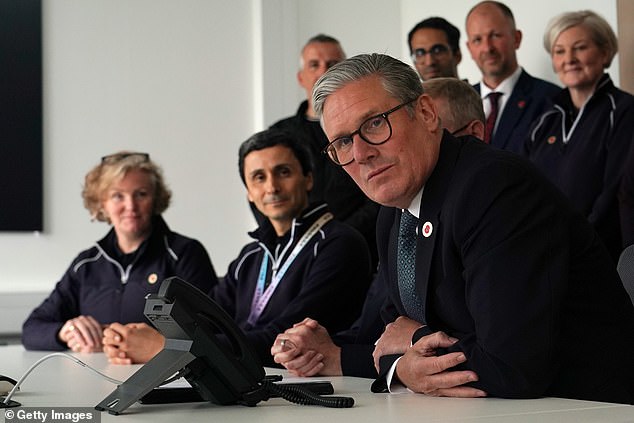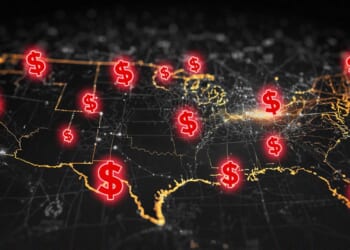Keir Starmer struck an emergency trade deal with Donald Trump yesterday in a bid to save the British car industry.
The deal, which President Trump said was only possible ‘because of Brexit‘, will cut US tariffs on cars imported from the UK from 25 per cent to 10 for the first 100,000 vehicles.
Ministers had feared that leading car makers were preparing to cut thousands of jobs unless the tariffs were reduced.
Sources said Jaguar Land Rover had been poised to announce ‘hundreds’ of job losses as early as next week.
The deal is the first struck by the US since President Trump’s ‘Liberation Day’ tariffs stunned the world.
Mr Trump said the speed of the deal with the UK was only possible because of Britain’s status outside the EU.
And he hinted that rival car manufacturers in EU countries such as Germany are very unlikely to get a similar deal.
Boris Johnson last night hailed the importance of Brexit in sealing the deal – and highlighted the irony that Sir Keir was ‘reaping the dividends of that policy, which he, of course, singularly failed to support at the time’.
Tariffs on British steel exports will also be slashed from 25 per cent to zero, while ministers said British pharmaceutical firms are set for ‘preferential treatment’ if President Trump presses ahead with threats to increase tariffs on the sector.

The premiers raised the prospect of a Transatlantic trade deal when they met at the White House in February
Ministers made no immediate progress in reducing the 10 per cent ‘baseline’ tariff on all exports to the US.
Britain also agreed to prevent cheap Chinese steel and pharmaceuticals being routed through the UK to America as part of an agreement on what the White House called ‘security of supply’.
US commerce secretary Howard Lutnick said an unnamed British-based airline had also agreed to buy Boeing jets worth £8billion.
The White House said that, compared to the position before Liberation Day, overall US tariffs on British goods had still risen from 3.4 per cent to 10 per cent, while Sir Keir had agreed to cut tariffs on US goods from 5.1 per cent to 1.8.
Kemi Badenoch last night said Britain had been ‘shafted’ by the deal. ‘When Labour negotiates, Britain loses,’ she said. ‘We cut our tariffs – America tripled theirs.’
Referencing the President’s favourite drink, Shadow business spokesman Andrew Griffith welcomed the tariff cuts but said it was a ‘Diet Coke deal, not the Real Thing.’
But the PM said: ‘The question we should be asking is, is it a better position than we were in yesterday?’
He claimed the breakthrough vindicated his strategy of sucking up to President Trump, adding: ‘My government has put Britain at the front of the queue because we want to work constructively with allies.’
Government sources acknowledged the deal falls short of a hoped-for agreement on lifting all US tariffs, but said ministers decided to press ahead with a partial deal now to prevent redundancies in the car industry.
Business secretary Jonathan Reynolds said the ‘significance of the US market’ to high-end exporters such as JLR, Aston Martin and Bentley meant the UK was facing the ‘imminent announcement’ of job losses if the 25 per cent tariff had remained.

Donald Trump said the agreement would be ‘really good’ for both sides – as British businesses hope for relief from his brutal tariffs

In an on-camera call between the leaders, Sir Keir Starmer paid tribute to negotiators and the ‘special relationship’
Talks will now continue on a wider deal. But this could involve major concessions, such as cutting the digital services tax on US tech giants or raising the price that the NHS pays for US drugs.
Downing Street was forced to scramble into action yesterday after Mr Trump interrupted the PM watching Arsenal’s televised Champion’s League match against Paris Saint-Germain on Wednesday night to finalise the terms.
Sir Keir, who had set aside yesterday for the VE Day commemorations then attended a hastily arranged press conference at a Jaguar Land Rover factory in the West Midlands where he held a choreographed phone call with the US President.
Mr Trump, who backed Brexit, said the EU would have to wait for a deal. He said: ‘This was separate because of Brexit in particular. It always seemed so natural.’
He also indicated that he was willing to give the UK a special deal because car exports are focused on high-end vehicles. Mr Johnson welcomed efforts to lift the ‘insane’ tariffs, but said it was still not a ‘proper all singing, all dancing, free trade deal’.
The former PM told GB News: ‘Brexit certainly is responsible for this. We wouldn’t have been able to do this deal individually if we weren’t outside the EU.’
Some 101,000 cars were shipped from the UK to the US last year – nearly 17 per cent of the total exported. Mike Hawes of the Society of Motor Manufacturers said: ‘This deal will provide much needed relief.’
The deal will allow US farmers to export 13,000 tonnes of beef tariff-free. But it will also open up the US market to UK exporters – and ministers insisted that hormone-treated beef and other controversial products such as chlorinated chicken, would remain banned.







